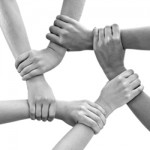We have been asking older people for their advice on how we can cope with the current corona virus crisis. They have lived  through other cataclysmic events, so we should take their suggestions very seriously. We’ve opened a new site where older people can share their advice, or younger people can interview their elders and post their advice. Please join in!
through other cataclysmic events, so we should take their suggestions very seriously. We’ve opened a new site where older people can share their advice, or younger people can interview their elders and post their advice. Please join in!
Ken, age 82, offers his advice to younger people:
The COVID-19 pandemic is a highly unusual period in everyone’s life. It has seemingly turned life up-side-down. I have experienced a variety of crisis in my 82 years, such as World War II, the polio epidemic, deadly hurricanes, floods, and other traumatic events. There was a common thread that runs through each of them. That is, the people who truly care put their shoulders to the grindstone and do whatever it takes to help others survive and carry on. By pitching in and following the prescribed protocols and mandates, we will be helping to mitigate the virus’ deadly threats. That’s the least we can do.
We can do more if we live in a neighborhood or a community that needs help. Know what is happening to people’s lives as we work our way through this challenge. Start with one’s own family, one’s extended family, and one’s community. Families are making huge sacrifices and their concerns are not limited to health but to economics as well. It doesn’t matter if a person is 4 years old or 104 years old, there may be things that can be done to help one in need. Yes, be concerned about one’s own situation but focus on the greater good that could be done. Every day in life we are presented with a question. Am I contributing toward goodness or not? When we do contribute we can look back and not complain about the past but to have gratitude for how we were able to respond. Our gratitude can be for all the medical personnel and first responders who are on the front lines protecting us. We need not overlook all the essential workers and the legions of volunteers who devote their time to make lives better for their communities. Yes, these are indeed challenging times but as all life on this amazing planet, we are all interconnected and what we do to help others makes life not only have much meaning but makes us more human.
One brief story. I live in the Adirondack Mountains but I grew up along the coast of Rhode Island. As a child during WW II, we had many more governmental restrictions than the current virus restrictions. Most everything was rationed or totally not available. Many food items were no longer available. Most everyone had to walk anyplace. There was limited gas for cars. No cars were being made anyway. Auto makers were only making tanks. We had to use ration stamps when purchasing things. We could purchase only one pair of shoes each year. We had total blackouts on many nights do to German subs waiting off-shore to sink American ships. Daily practice bombing runs took place over our home by the Naval Aviators. So what do little kids do in my community? We had our little wagons and went door to door asking for scrap metal of any kind and rags. The metal went into making military weapons and the rags were for the war effort at home where they were need in the factories. Everybody pitched in to defeat the enemy. There was great fear on the part of our community but we all stuck together and did whatever we could to survive. Neighbors helped neighbors. That was then and this is now. Neighbors still help neighbors.









